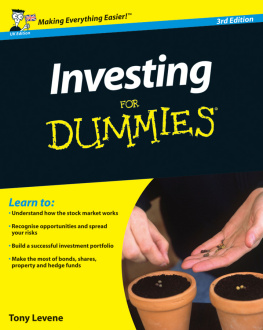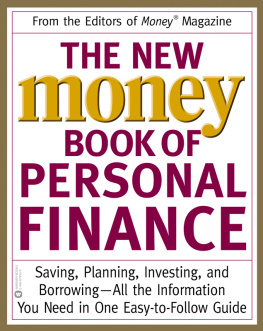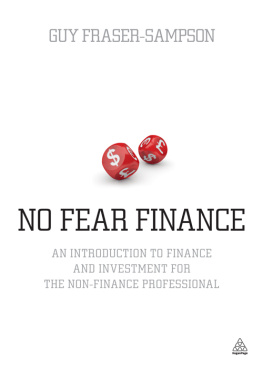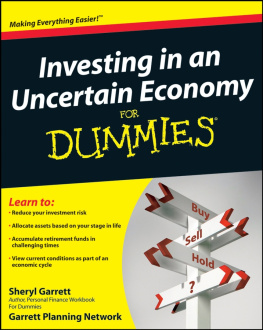
 Damian Lillicrap is the Head of Investment Strategy for QSuper. He invests $38 billion in global portfolios for 550,000 fund members. He arrived in the world of finance after a stint in the real world. He studied chemical engineering then worked as an engineer for 5 years. He fell into finance via a working holiday in London. His roles evolved from photocopying and distributing reports for traders, to generating return and risk analysis before managing portfolios. He has now been in finance for over twenty years, first working for Credit Suisse in London, later the Commonwealth and Macquarie Banks in Sydney, then to the Queensland Investment Corporation before his current role with QSuper. He lives in Brisbane. For more information, visit his website: www.barenakedeconomist.com
Damian Lillicrap is the Head of Investment Strategy for QSuper. He invests $38 billion in global portfolios for 550,000 fund members. He arrived in the world of finance after a stint in the real world. He studied chemical engineering then worked as an engineer for 5 years. He fell into finance via a working holiday in London. His roles evolved from photocopying and distributing reports for traders, to generating return and risk analysis before managing portfolios. He has now been in finance for over twenty years, first working for Credit Suisse in London, later the Commonwealth and Macquarie Banks in Sydney, then to the Queensland Investment Corporation before his current role with QSuper. He lives in Brisbane. For more information, visit his website: www.barenakedeconomist.com

Contents
List of figures
(graphs and diagrams)
Introduction
Economics has been referred to as the dismal science we really didnt want to know much about it. Recessions came; recessions went. We didnt like them, but we believed they were relatively fleeting. Well, that was the way of things. Now, something seems broken, and we want someone to fix it.
Theyre not trying hard enough! we shout. Believe me, they are trying but there are no easy answers. The problems around the globe are worse than most people understand. We are seeing manifestations of the crisis, such as slow growth and higher unemployment. Unfortunately, many of these problems are likely to get worse before they get better. We are being barraged with economic numbers and sound bites unemployment is X, the market has gone up Y, this economist says improving, that economist says its deteriorating when what we really need is to understand how the broader picture works. It is important that people without financial expertise understand what is happening because:
- they are exposed to risks
- they impact the policies that politicians follow
- in a chaotic world they need to take charge of their finances or risk losing them.
One European politician famously said, We all know what to do, we just dont know how to get re-elected after weve done it, and this quote could apply across many countries at the moment. When I first heard it, I thought it reflected badly on politicians; later I thought it reflected badly on us, the voters. But how can voters make good decisions if the problem hasnt been explained in terms they can understand? Perhaps this quote reflects badly on me for not writing a book like this sooner.
I started life as a chemical engineer, and ended up in markets by chance. I have been in finance for about 20 years and am now responsible for investing tens of billions of dollars. As an engineer, if you make a mistake, if you dont understand something, people can get hurt, or worse. In engineering there is a tight set of beliefs about what is an acceptable approach to building something. From such an environment, I found much of economics and investment theory quite inconsistent when I first started. Sadly, based on what we see around us, most of us would agree that the profession that guides us on how to manage our financial system has been found wanting over the last few years.
That said, there are many wise economists and investors. I have been privileged to have worked with and met some of the most respected economists and investors in the world, and many of these individuals have been incredibly generous with their time and knowledge.
Some people suggest that the rules of economics need to be rewritten since the global financial crisis (GFC). My perspective is that there are no rules for economics or, conversely, that there are too many rules, too many views. While in science there tends to be a dominant paradigm (set of beliefs), which tends to be quite tightly specified, in economics there are competing schools of belief about how markets work and what should be done to fix them. It is less a science and more of a collection of churches of beliefs.
I have been something of a magpie in this world, happy to borrow from any school in the search for an overall, consistent set of understandings that make sense and that help make good investment decisions. Sometimes an academic paper captures the essence of an idea perfectly, sometimes an old market clich contains wisdom that cant be escaped, and I often consider reflexivity the circular relationship between cause and effect in markets as described by George Soros. Ive mined all of these different areas looking for the gems.
My fund has got most of the big investment decisions right (within the discretion weve had) over the course of the GFC, so these views, these ideas, have been road tested in the toughest environment. People try to do the best that they can in finance, commerce and industry. Some label it greed, but we should acknowledge that if they gave their best on a running track or football field we would respect them. There has been some market behaviour that was unconscionable. I dont condone this. However, Im not convinced that a desire to make a profit was the core reason for todays problems. I believe todays problems stem from a failure to really understand what was driving the economy during the good times, and the long-term consequences of what was going on.
This book examines how things that looked so right, when examined via a disciplined, almost scientific, approach, were indeed flawed. In economies, imbalances can build slowly, sometimes for decades, and outcomes can look great as they build, but can then unwind dramatically. We cant rely on correlations here. Instead we need understand the building blocks of the economy to see how things play out.
Economic problems cause social problems, and social problems result in hardship. As debt balances build, we are creating intergenerational issues supporting lifestyles at the expense of future generations. While we hear a lot about growth and austerity, the real choice, though, appears to be less about these two and more about the pain today versus more pain for the next generation.
An unfortunate reality is that, as nations, many of us have lived beyond our means for a number of years. This will be painful to rectify. Blaming other countries for our woes wont help; all of us were drawn into believing that we were doing the right thing. Blaming others and aggressive behaviour can be detrimental wars have been incubated in environments of blame. With perspective we can get through this, and the greater the perspective and the greater the generosity to others, the sooner we will be through it and the better the journey will be.
This book focusses on the basics of economics and investing. While the two are related, they are not the same. I believe you need to understand economics when investing, but this is just an input to an investment decision. The biggest investment opportunities seem to occur when a false paradigm is held widely, and there is money to be made when this fallacy is exposed. It happens surprisingly often tech bubble, credit bubble, and so on. I think there is a subtle misalignment of interest that leads to housing bubbles, which we have seen too regularly over recent decades, and I suggest a mechanism to improve the situation.
There is a lot about money (money supply) and debt in the following chapters. This is what you need to understand the economic crisis of our time, and how things will play out over the next decade or two. Increasingly, people are being made responsible for their own retirement outcomes. Unless they take an interest in this they are probably going to end up with less than they expect. They are likely to be disappointed when they realise this, and will need to decide between a number of compromises. The sooner they work this out the more flexibility they will have in their choices.
Next page






 Damian Lillicrap is the Head of Investment Strategy for QSuper. He invests $38 billion in global portfolios for 550,000 fund members. He arrived in the world of finance after a stint in the real world. He studied chemical engineering then worked as an engineer for 5 years. He fell into finance via a working holiday in London. His roles evolved from photocopying and distributing reports for traders, to generating return and risk analysis before managing portfolios. He has now been in finance for over twenty years, first working for Credit Suisse in London, later the Commonwealth and Macquarie Banks in Sydney, then to the Queensland Investment Corporation before his current role with QSuper. He lives in Brisbane. For more information, visit his website: www.barenakedeconomist.com
Damian Lillicrap is the Head of Investment Strategy for QSuper. He invests $38 billion in global portfolios for 550,000 fund members. He arrived in the world of finance after a stint in the real world. He studied chemical engineering then worked as an engineer for 5 years. He fell into finance via a working holiday in London. His roles evolved from photocopying and distributing reports for traders, to generating return and risk analysis before managing portfolios. He has now been in finance for over twenty years, first working for Credit Suisse in London, later the Commonwealth and Macquarie Banks in Sydney, then to the Queensland Investment Corporation before his current role with QSuper. He lives in Brisbane. For more information, visit his website: www.barenakedeconomist.com